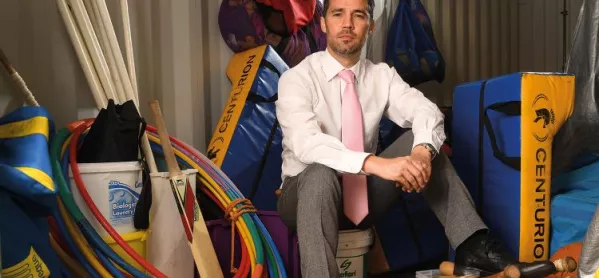- Home
- ‘Against the odds, free schools are a success’
‘Against the odds, free schools are a success’

Last year’s GCSE results day was my final one as a serving headteacher, having set up Bedford Free School (BFS) with colleagues back in 2012. It was tense – one final chance to see how our results would reflect the school we founded from scratch. That said, last Thursday was nerve-wracking from an entirely different perspective. Not only was I nervous for the students I’d seen through to the end of Year 10 at BFS, but I was also waiting to hear from free schools across the country to see how they had done. Fortunately, it sounds like we’ve had another fantastic set of GCSEs, both at BFS and nationally, and these just after another batch of outstanding A-level results, proving further the success of the free school programme.
I know these are early days; it’s still a small number of schools who have reached this point, and I’m sure there are schools out there who we haven’t heard from who aren’t as happy with their results. That being said, I’m not going to apologise for being excited about what this means for the future of the policy.
We know that last year, free schools were really strong performers at GCSE – as a cohort, they scored higher at Progress 8 than any other school type – and some of the initial signs coming out of this time around would seem to indicate that they’ve seen similar levels of success. Now, I’m not going to come out and predict that they’re going to top the tables again, but I would expect them to be really strong performers.
Critics will claim that the small number of free schools publishing results last year undermines any comment praising their success. In all honesty, I sympathise with this argument, and I’m certainly not claiming that the free school cohort will continue to overachieve to this extent – but with another year, including schools receiving their first full sets of results, the programme continues to go from strength-to-strength.
What’s more, when this newest tranche of schools is included, we’ll have nearly 100 free schools publishing GCSE results. At this rate of progress, it’s not going to be long before the wider cohort is large enough that their aggregated attainment has some serious weight.
Free schools tackle underperformance
The great results achieved by these latest schools bring additional benefits. For me, something really exciting is that we’re seeing more and more from schools that we don’t tend to hear as much about. It’s hard not to praise higher profile schools like Dixons Trinity, Tauheedal Islam Boys' High School and Reach Feltham when they’re posting truly outstanding results – but it’s always worth remembering that the overall picture is much broader, and there are lots of other free schools also doing fantastic work.
From what I’ve seen of last week’s results, we’re seeing even more great schools come through, expanding the list of example schools we can use in the future, and really showing off the widespread achievement across the sector.
It’s also worth bearing in mind that a lot of these free schools have achieved great things despite significant opposition. They might well have opened in temporary accommodation, faced local official or union campaigns or struggled to recruit the specialist teachers needed for expert teaching. Despite this, they’ve managed to sign up pupils, bring great staff on board and offer an outstanding quality of education.
I know first-hand the obstacles that can stack up in the way of setting up a new school, even in an area that desperately needs it. It is hard, but when you look around at the excited faces on results day, you realise that all the hard work was worth it. That’s still what I focus on now, looking at the national picture as opposed to the local one, and helping to bring a great new education where it's most needed.
This is absolutely what the programme is prioritising at the moment – the current application criteria are focused explicitly on areas of entrenched educational underperformance. I’m fully behind this and these results again highlight the impact that free schools can make – they should be concentrated in those areas that most need them. It’s one of the reasons why right now the programme is as exciting as it has ever been.
The free school movement has experienced bumps along the road, no one would deny that, but it’s unarguably heading in the right direction.
Mark Lehain is the founder and former headteacher of Bedford Free School. He is now director of Parents and Teachers for Excellence and interim director of the New Schools Network
Keep reading for just £1 per month
You've reached your limit of free articles this month. Subscribe for £1 per month for three months and get:
- Unlimited access to all Tes magazine content
- Exclusive subscriber-only stories
- Award-winning email newsletters


